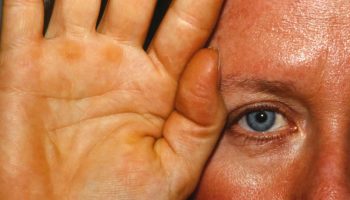Contents
- What is hydroxyzine
- What is hydroxyzine used for?
- Hydroxyzine dosage
- Adult dose for anxiety
- Adult dose for pruritus
- Adult dose for sedation
- Adult dose for nausea and vomiting
- Pediatric dose for sedation
- Pediatric dose for anxiety
- Pediatric dose for pruritus
- Pediatric dose for nausea and vomiting
- What should I do if I forget a dose?
- Renal dose adjustments
- Liver dose adjustments
- Dialysis
- Hydroxyzine side effects
What is hydroxyzine
Hydroxyzine is a first generation antihistamine (histamine H1 receptor blocker) that is mostly used to help control anxiety and tension caused by nervous and emotional conditions because of its sedating effects. Hydroxyzine can also be used to help control anxiety and relieve tension and as a sedative produce sleep before surgery. Hydroxyzine is also used to relieve the symptoms of an allergic reaction (e.g., hives, allergic rhinitis, symptoms of itching skin) caused by chronic urticaria, histamine-mediated pruritus and atopic and contact dermatoses). Unlike hydroxyzine major metabolite cetirizine, hydroxyzine does cause drowsiness.
Hydroxyzine hydrochloride (hydroxyzine HCL) is the hydrochloride salt form of hydroxyzine, a piperazine histamine H1-receptor antagonist with anti-allergic, antispasmodic, sedative, anti-emetic and anti-anxiety properties. Hydroxyzine HCL blocks the H1 histamine receptor and prevents the symptoms that are caused by histamine activity on capillaries, bronchial smooth muscle, and gastrointestinal smooth muscle, including vasodilatation, increased capillary permeability, bronchoconstriction, and spasmodic contraction of gastrointestinal smooth muscle. In addition, hydroxyzine hydrochloride crosses the blood-brain barrier and acts on the histamine H1-receptors in the central nervous system.
Hydroxyzine was approved for use in the United States in 1957 and continues to be widely used. Hydroxyzine is available as tablets or capsules of 10, 25, 50 and 100 mg in multiple generic forms and under the trade names Atarax and Vistaril. Hydroxyzine is also available as an oral suspension or syrup and as a liquid for injection. Most formulations are available without prescription. The recommended adult oral dose ranges from 25 to 100 mg three to four times daily. Doses used for itching are generally lower than those for anxiety and tension.
Hydroxyzine common side effects include sedation, impairment of motor function, confusion, dizziness, blurred vision, dry mouth and throat, palpitations, tachycardia, abdominal distress, constipation and headache. Antihistamines can worsen urinary retention and glaucoma.
General precautions:
- Hydroxyzine may cause side effects such as drowsiness that can affect your ability to perform certain tasks; avoid driving and activities such as operating machinery until you know how hydroxyzine affects you.
- Do not drink alcohol while taking this drug.
- Hydroxyzine should not be used as the sole treatment of psychosis or of clearly demonstrated depression.
- Hydroxyzine has demonstrated primary skeletal muscle relaxation and antispasmodic properties experimentally.
- Hydroxyzine is unrelated chemically to benzodiazepines, phenothiazines, reserpine, and meprobamate.
- Hydroxyzine has been reported to be incompatible with aminophylline, benzylpenicillin salts, chloramphenicol sodium succinate, dimenhydrinate, doxorubicin hydrochloride (in a liposomal formulation), thioridazine, and some soluble barbiturates.
- Hydroxyzine overdosage: There is no specific antidote; the manufacturer product information should be consulted for treatment options.
Hydroxyzine special precautions
Before taking hydroxyzine:
- tell your doctor and pharmacist if you are allergic to hydroxyzine, cetirizine (Zyrtec), levocetirizine (Xyzal), any other medications, or any of the ingredients in hydroxyzine preparations. Ask your doctor or pharmacist for a list of the ingredients.
- tell your doctor and pharmacist what prescription and nonprescription medications, vitamins, and nutritional supplements you are taking or plan to take. Be sure to mention any of the following: antihistamines; azithromycin (Zithromax, ZMax), certain antidepressants such as citalopram (Celexa) and fluoxetine (Prozac, Sarafem, Selfemra); medications for anxiety; certain medications for arrhythmias such as amiodarone (Cordarone, Nexterone, Pacerone, ), procainamide, quinidine (in Nuedexta), and sotalol (Betapace, Sorine, Sotylize); barbiturates; clarithromycin (Biaxin, in Prevpac); droperidol (Inapsine); erythromycin (Eryc, Ery-Tab, PCE, others); gatifloxacin; certain medications for mental illness such as chlorpromazine, clozapine (Clozaril, Fazaclo ODT, Versacloz), iloperidone (Fanapt), quetiapine (Seroquel), and ziprasidone (Geodon); meperidine (Demerol); methadone (Dolophine, Methadose); moxifloxacin (Avelox); medications for pain; ondansetron (Zofran, Zuplenz); pentamidine (Nebupent, Pentam); and medications for seizures, sedatives, sleeping pills, and tranquilizers. Your doctor may need to change the doses of your medications or monitor you carefully for side effects.
- tell your doctor if you have a prolonged QT interval (a rare heart problem that may cause irregular heartbeat, fainting, or sudden death) or if you plan to be pregnant or are pregnant. Your doctor will probably tell you not to take hydroxyzine.
- tell your doctor if anyone in your family has or has ever had a prolonged QT interval or if you have or have ever had a slow or irregular heartbeat, low blood levels of potassium or magnesium, heart failure, a heart attack, or heart disease.
- tell your doctor if you are breastfeeding. Do not breastfeed while taking hydroxyzine.
- talk to your doctor about the risks and benefits of taking hydroxyzine if you are 65 years of age or older. Older adults should not usually take hydroxyzine because it is not as safe as other medications that can be used to treat the same condition.
- you should know that this medication may make you drowsy. Do not drive a car or operate machinery until you know how this medication affects you.
- ask your doctor about the safe use of alcohol while you are taking this medication. Alcohol can make the side effects of hydroxyzine worse.
Allergies
- Tell your doctor if you have ever had any unusual or allergic reaction to hydroxyzine or any other medicines. Also tell your health care professional if you have any other types of allergies, such as to foods, dyes, preservatives, or animals. For non-prescription products, read the label or package ingredients carefully.
Children
- Appropriate studies performed to date have not demonstrated pediatric-specific problems that would limit the usefulness of hydroxyzine in children.
Geriatric
- Appropriate studies performed to date have not demonstrated geriatric-specific problems that would limit the usefulness of hydroxyzine in the elderly. However, elderly patients are more likely to have unwanted side effects (such as confusion, drowsiness) and age-related liver, kidney, or heart problems, which may require caution and an adjustment in the dose for patients receiving hydroxyzine.
Pregnancy
- Pregnancy Category C: Animal studies have shown an adverse effect and there are no adequate studies in pregnant women OR no animal studies have been conducted and there are no adequate studies in pregnant women.
Breastfeeding
- There are no adequate studies in women for determining infant risk when using hydroxyzine during breastfeeding. Weigh the potential benefits against the potential risks before taking this medication while breastfeeding.
Drug Interactions
Although certain medicines should not be used together at all, in other cases two different medicines may be used together even if an interaction might occur. In these cases, your doctor may want to change the dose, or other precautions may be necessary. When you are taking hydroxyzine, it is especially important that your healthcare professional know if you are taking any of the medicines listed below. The following interactions have been selected on the basis of their potential significance and are not necessarily all-inclusive.
Using hydroxyzine with any of the following medicines is not recommended. Your doctor may decide not to treat you with hydroxyzine or change some of the other medicines you take.
- Amifampridine
- Amisulpride
- Bepridil
- Cisapride
- Dronedarone
- Mesoridazine
- Pimozide
- Piperaquine
- Saquinavir
- Sodium Oxybate
- Sparfloxacin
- Terfenadine
- Thioridazine
- Tranylcypromine
- Ziprasidone
Using hydroxyzine with any of the following medicines is usually not recommended, but may be required in some cases. If both medicines are prescribed together, your doctor may change the dose or how often you use one or both of the medicines.
- Alfentanil
- Alfuzosin
- Amiodarone
- Amitriptyline
- Anagrelide
- Apomorphine
- Aripiprazole
- Aripiprazole Lauroxil
- Arsenic Trioxide
- Asenapine
- Astemizole
- Atazanavir
- Azithromycin
- Bedaquiline
- Benzhydrocodone
- Bromazepam
- Bromopride
- Buprenorphine
- Bupropion
- Buserelin
- Butorphanol
- Carbinoxamine
- Chloroquine
- Chlorpromazine
- Ciprofloxacin
- Citalopram
- Clarithromycin
- Clomipramine
- Clozapine
- Codeine
- Crizotinib
- Cyclobenzaprine
- Dabrafenib
- Dasatinib
- Degarelix
- Delamanid
- Desipramine
- Deslorelin
- Deutetrabenazine
- Dihydrocodeine
- Disopyramide
- Dofetilide
- Dolasetron
- Domperidone
- Doxepin
- Doxylamine
- Droperidol
- Ebastine
- Efavirenz
- Encorafenib
- Eribulin
- Erythromycin
- Escitalopram
- Famotidine
- Felbamate
- Fentanyl
- Fingolimod
- Flecainide
- Flibanserin
- Fluconazole
- Fluoxetine
- Formoterol
- Foscarnet
- Fosphenytoin
- Galantamine
- Gatifloxacin
- Gemifloxacin
- Glycopyrrolate
- Glycopyrronium Tosylate
- Gonadorelin
- Goserelin
- Granisetron
- Halofantrine
- Haloperidol
- Histrelin
- Hydrocodone
- Hydromorphone
- Hydroquinidine
- Hydroxychloroquine
- Ibutilide
- Iloperidone
- Imipramine
- Inotuzumab Ozogamicin
- Itraconazole
- Ivabradine
- Ivosidenib
- Ketoconazole
- Lapatinib
- Leuprolide
- Levofloxacin
- Levorphanol
- Lofexidine
- Loxapine
- Lumefantrine
- Macimorelin
- Meclizine
- Mefloquine
- Meperidine
- Methadone
- Metoclopramide
- Metronidazole
- Midazolam
- Mifepristone
- Mizolastine
- Moricizine
- Morphine
- Morphine Sulfate Liposome
- Moxifloxacin
- Nafarelin
- Nalbuphine
- Nelfinavir
- Nilotinib
- Norfloxacin
- Octreotide
- Ofloxacin
- Olanzapine
- Ondansetron
- Osimertinib
- Oxycodone
- Oxymorphone
- Paliperidone
- Panobinostat
- Papaverine
- Paroxetine
- Pasireotide
- Pazopanib
- Pentamidine
- Pentazocine
- Periciazine
- Perphenazine
- Pimavanserin
- Pipamperone
- Pitolisant
- Posaconazole
- Probucol
- Procainamide
- Prochlorperazine
- Promethazine
- Propafenone
- Protriptyline
- Quetiapine
- Quinidine
- Quinine
- Ranolazine
- Remifentanil
- Ribociclib
- Risperidone
- Ritonavir
- Secretin Human
- Sertindole
- Sertraline
- Sevoflurane
- Sodium Phosphate
- Sodium Phosphate, Dibasic
- Sodium Phosphate, Monobasic
- Solifenacin
- Sorafenib
- Sotalol
- Sufentanil
- Sulpiride
- Sunitinib
- Tacrolimus
- Tamoxifen
- Tapentadol
- Telaprevir
- Telavancin
- Telithromycin
- Tetrabenazine
- Tiotropium
- Tizanidine
- Tolterodine
- Toremifene
- Tramadol
- Trazodone
- Trimipramine
- Triptorelin
- Vandetanib
- Vardenafil
- Vemurafenib
- Venlafaxine
- Vilanterol
- Vinflunine
- Voriconazole
- Vorinostat
- Zolpidem
- Zuclopenthixol
Other Interactions
Certain medicines should not be used at or around the time of eating food or eating certain types of food since interactions may occur. Using alcohol or tobacco with certain medicines may also cause interactions to occur. Discuss with your healthcare professional the use of your hydroxyzine with food, alcohol, or tobacco.
Other Medical Problems
The presence of other medical problems may affect the use of hydroxyzine. Make sure you tell your doctor if you have any other medical problems, especially:
- Electrolyte imbalance or
- Heart attack or
- Heart disease or
- Heart failure, uncompensated or
- Heart rhythm problems (e.g., long QT syndrome, slow heartbeat), or family history of—Use with caution. May cause side effects to become worse.
Heart rhythm problem (e.g., prolonged QT interval)—Should not be used in patients with this condition.
Skin problems—Use with caution. May make these conditions worse.
What is hydroxyzine used for?
Hydroxyzine is used in adults and children to relieve itching caused by allergic skin reactions. It is also used alone or with other medications in adults and children to relieve anxiety and tension. Hydroxyzine is also used along with other medications in adults and children as a sedative before and after general anesthesia for surgery. Hydroxyzine is in a class of medications called antihistamines (histamine H1 receptor blocker). Hydroxyzine works by blocking the H1 histamine receptor and prevents the symptoms that are caused by histamine activity on capillaries, bronchial smooth muscle, and gastrointestinal smooth muscle, including vasodilatation, increased capillary permeability, bronchoconstriction, and spasmodic contraction of gastrointestinal smooth muscle. In addition, hydroxyzine hydrochloride crosses the blood-brain barrier and acts on the histamine H1-receptors in the central nervous system.
Hydroxyzine dosage
Hydroxyzine comes as capsules, tablets, a syrup, and suspension to take by mouth. It usually is taken three or four times a day. Follow the directions on your prescription label carefully, and ask your doctor or pharmacist to explain any part you do not understand. Take hydroxyzine exactly as directed. Do not take more or less of it or take it more often than prescribed by your doctor.
Shake the suspension well before each use to mix the medication evenly.
Administration advice:
- Use at the lowest effective dose and for the shortest possible duration.
- Adjust dosage according to the patient’s response to therapy.
- If initiating treatment by the IM (intramuscular) route, administer subsequent doses orally whenever practical.
- Vigorously shake the oral suspension product until it is completely resuspended prior to use.
Adult dose for anxiety
- Oral: 50 to 100 mg 4 times a day
- IM (intramuscular route): 50 to 100 mg immediately, then every 4 to 6 hours as needed
Uses:
- Oral: Provides symptomatic relief of anxiety and tension associated with psychoneurosis; an adjunct treatment in organic disease states in which anxiety is manifested.
- IM (intramuscular route): Treatment for psychiatric and emotional emergencies, including acute alcoholism.
Adult dose for pruritus
- Oral: 25 mg 3 or 4 times a day
Use: Management of pruritus due to allergic conditions such as chronic urticaria and atopic and contact dermatoses, and in histamine-mediated pruritus.
Adult dose for sedation
- Oral: 50 to 100 mg orally
- IM (intramuscular route): 25 to 100 mg
Uses:
- Oral: As a sedative when used as premedication and following general anesthesia.
- IM (intramuscular route): Pre- and postoperative and pre- and postpartum adjunctive treatment.
Adult dose for nausea and vomiting
- IM (intramuscular route): 25 to 100 mg
Use: Treatment of nausea and vomiting, excluding nausea and vomiting of pregnancy.
Pediatric dose for sedation
- Oral: 0.6 mg/kg
- IM (intramuscular route): 0.5 mg/lb of body weight
Uses:
- Oral: As a sedative when used as premedication and following general anesthesia.
- IM (intramuscular route): Pre- and postoperative adjunctive treatment.
Pediatric dose for anxiety
Under Age 6:
- Oral: 50 mg/day in divided doses
Age 6 and Over:
- Oral: 50 to 100 mg per day in divided doses
Uses:
- Provides symptomatic relief of anxiety and tension associated with psychoneurosis; an adjunct treatment in organic disease states in which anxiety is manifested.
- Management of pruritus due to allergic conditions such as chronic urticaria and atopic and contact dermatoses, and in histamine-mediated pruritus.
Pediatric dose for pruritus
Under Age 6:
- Oral: 50 mg/day in divided doses
Age 6 and Over:
- Oral: 50 to 100 mg per day in divided doses
Uses:
- Provides symptomatic relief of anxiety and tension associated with psychoneurosis; an adjunct treatment in organic disease states in which anxiety is manifested.
- Management of pruritus due to allergic conditions such as chronic urticaria and atopic and contact dermatoses, and in histamine-mediated pruritus.
Pediatric dose for nausea and vomiting
- IM (intramuscular route): 0.5 mg/lb of body weight
Use: Treatment of nausea and vomiting.
What should I do if I forget a dose?
If your doctor has told you to take hydroxyzine regularly, take the missed dose as soon as you remember it. However, if it is almost time for the next dose, skip the missed dose and continue your regular dosing schedule. Do not take a double dose to make up for a missed one.
Renal dose adjustments
- Data not available
Liver dose adjustments
- Data not available
Dialysis
- Data not available
Hydroxyzine side effects
Hydroxyzine may cause side effects. Tell your doctor if any of these symptoms are severe or do not go away:
- dry mouth
- constipation (especially in older adults)
- confusion (especially in older adults)
- dizziness
- headache
Some side effects can be serious. Stop using hydroxyzine and call your doctor at once if you experience any of the following symptoms:
- fast or pounding heartbeats;
- headache with chest pain;
- severe dizziness, fainting;
- unintentional trembling or shaking movements;
- a seizure (convulsions).
If you experience any of the following symptoms of a serious skin condition; stop taking hydroxyzine and call your doctor immediately:
- rash
- pus-filled, blister-like sores (lesions), areas of swelling and redness on the skin, and fever
Hydroxyzine may cause other side effects. Call your doctor if you have any unusual problems while you are taking this medication.
Hydroxyzine overdose
Hydroxyzine overdose occurs when someone takes more than the normal or recommended amount of hydroxyzine. This can be by accident or on purpose.
In case of overdose, call the poison control helpline at 1-800-222-1222, from anywhere in the United States. This national hotline number will let you talk to experts in poisoning. They will give you further instructions.
This is a free and confidential service. All local poison control centers in the United States use this national number. You should call if you have any questions about poisoning or poison prevention. It does NOT need to be an emergency. You can call for any reason, 24 hours a day, 7 days a week.
Information is also available online at (https://www.poisonhelp.org/help). If the victim has collapsed, had a seizure, has trouble breathing, or can’t be awakened, immediately call your local emergency services number.
Symptoms of hydroxyzine overdose may include the following:
- sedation
- dizziness
- seizures
- nausea
- vomiting
Below are other symptoms of a hydroxyzine overdose in different parts of the body.
AIRWAYS AND LUNGS
- Shortness of breath
BLADDER AND KIDNEYS
- Difficulty urinating
EYES, EARS, NOSE, THROAT, AND MOUTH
- Blurred vision
- Dry mouth
- Enlarged pupils
- Very dry eyes
- Ringing in the ears
HEART AND BLOOD
- Rapid heartbeat
- Low blood pressure
- Pounding heartbeat (palpitations)
NERVOUS SYSTEM
- Agitation
- Coma (decreased level of consciousness and lack of responsiveness)
- Seizures
- Delirium
- Depression
- Disorientation
- Dizziness
- Drowsiness
- Excitation
- Hallucinations (seeing or hearing things that aren’t there)
- Nervousness
- Sleeping difficulties
- Tremor
- Uncoordinated movement
- Unsteadiness
SKIN
- Flushed skin
STOMACH AND INTESTINES
- Nausea
- Vomiting
What to expect at the emergency room
Take the container to the hospital with you, if possible.
The health care provider will measure and monitor the person’s vital signs, including temperature, pulse, breathing rate, and blood pressure.
Tests that may done include:
- Blood and urine tests
- Chest x-ray
- ECG (electrocardiogram or heart tracing)
Treatment may include:
- Fluids through a vein (by IV)
- Medicines to treat symptoms
- Activated charcoal
- Laxative
- Breathing support, including a tube through the mouth into the lungs and connected to a breathing machine (ventilator)
Hydroxyzine overdose prognosis
Recovery is likely if the person survives the first 24 hours. Complications such as pneumonia, muscle damage from lying on a hard surface for a prolonged period of time, or brain damage from lack of oxygen may cause permanent disability. Few people actually die from hydroxyzine overdose, unless they have serious heart rhythm disturbances or breathing problems.
Keep all medicines in child-proof bottles and out of reach of children.





